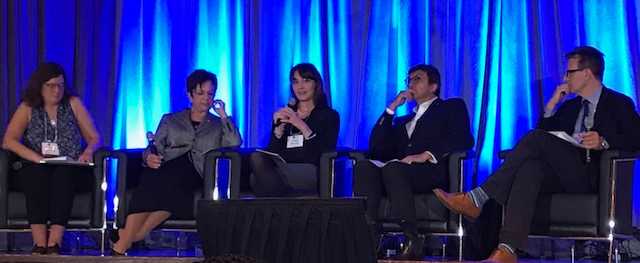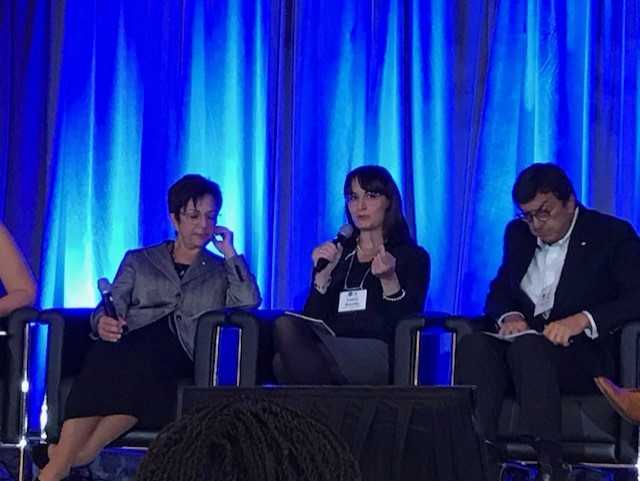
The Panel
The Institute for Clinical Evaluative Sciences (ICES) 25th Anniversary Symposium took place this past Tuesday, October 3rd in Toronto, Ontario. This conference, celebrating ICES’ quarter-century of impactful research, featured on its main panel Drs. Kim McGrail, David Naylor, Laura Rosella and Catherine Zahn to discuss the future directions for ICES’ next twenty-five years.
Dr. Michael Schull, President and CEO of ICES, moderated the symposium panel, which centered around breadth and depth of knowledge, co-creation of knowledge, complex problem-solving, and finally the skills necessary to nurture ICES into a future as fruitful as its twenty-five-year past.
Nurturing Knowledge
Ontario’s Deputy Ministry of Health and Long-Term Care, Dr. Bob Bell, gave the keynote address during which he elaborated on ICES’ status as a global leader in health services research—but the symposium panel noted the need for continued striving, in several areas.
Specifically, the panel discussed the need for academics to reconsider traditional evaluation metrics and incentives, and instead focus on building relationships, understanding partner needs, and responding to those needs. To support this aim, the panel emphasized the importance of ensuring students (future scientists) have the skills and training to conduct this type of applied research. Also mentioned were the benefits of rewarding researchers who consistently bridged the gap between scientific inquiry and real-world decision making.
The Complexity of Complex Problems
The panel also encouraged a broader, more expansive focus going forward. The panel suggested that by recognizing social and environmental factors, ICES may escape the narrowness of “precision medicine” thinking.
This kind of added dimension is often necessary, or at least very assistive, when dealing with multimorbidity analysis, social determinants of health, or efforts to expand beyond single-health-outcome investigation.
Future Days
In planning for the future, the panel noted three significant actions that will propel ICES forward:
(1) Telling better narratives about complex issues to communicate more effectively with policy makers;
(2) Enhancing the capacity for advanced methodological techniques by nurturing expertise in new and advanced research designs;
(3) Embracing the bounty of knowledge found in those with interdisciplinary expertise in order to communicate and harness mutual insights.
Optimism permeated the panel’s sentiment this year however, with Dr. Laura Rosella noting that the key strength of ICES lies not just in its extensive data holdings, but rather in the brilliant scientists, clinicians, and staff who find meaning in that data.

